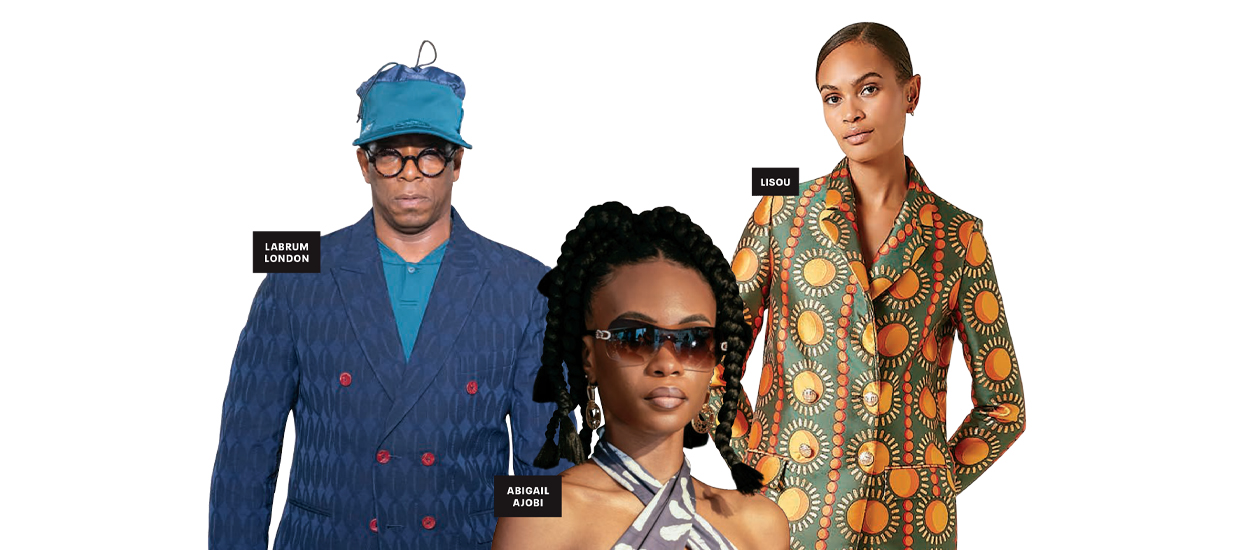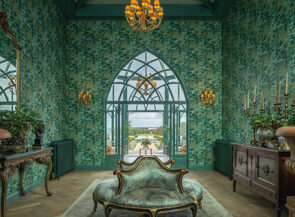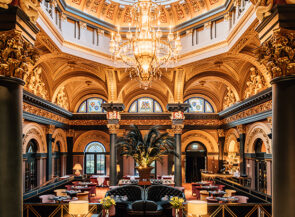September is the fashion world’s New Year—a chance for designers to show off their fresh collections and ideas. This year, the British Fashion Council’s London Fashion Week also brought fresh designers. It’s no secret that the major fashion weeks have long been lacking in diversity, but in London many Black British designers staked their claim to fame. Their eye-catching runway shows and presentations coincided with the opening of The Missing Thread, an exhibition at Somerset House exploring the historical relevance of Black fashion designers (it runs through January 7), as well as the Fashion Minority Report establishing The Hub, a resource that helps provide career guidance for talent from diverse backgrounds. Here are three Black British designers to watch.
Abigail Ajobi
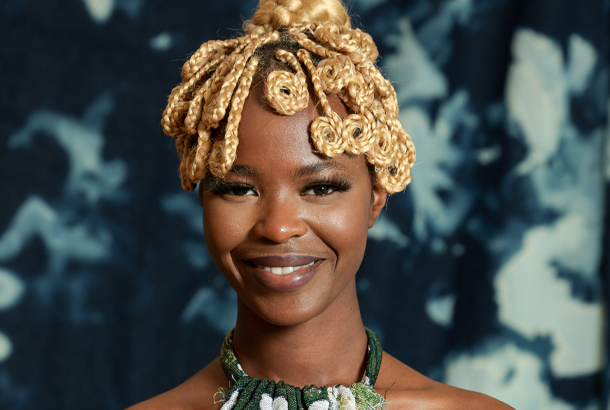
Social awareness and community empowerment are always front of mind for Abigail Ajobi, who launched her eponymous luxury streetwear brand during the heat of the pandemic and worldwide racial unrest. “My designs are always how I express myself and what I’m personally going through,” says the London College of Fashion graduate, who was raised in the U.K. capital by Nigerian parents. Her spring/summer 2024 capsule collection, Anti-Muse, is inspired by the Nigerian youth sub-culture known as alté and showcases bold àdìre prints (a kind of indigo tie-dye) on bell-bottom denim, bikini tops, jackets, and dresses. “This collection is all about authenticity and being comfortable in your own skin,” Ajobi says. “The best way that I know how to give back is through my designs.”
Foday Dumbuya
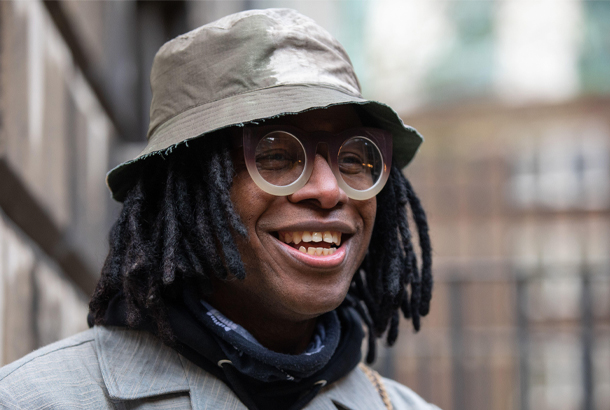
This past May, Dumbuya, the founder and creative director of Labrum London, received the prestigious Queen Elizabeth II Award for British Design—so all eyes were on him when he presented his spring/summer 2024 Nomoli Odyssey collection at London Fashion Week. Dumbuya mixes British tailoring with West African style, honoring his native country of Sierra Leone, and the new collection is inspired by the Nomoli, a carved figurine that symbolizes good luck and a bountiful harvest. “I wanted to bring the story of my life and elaborate on why Nomoli is so important to the Labrum movement,” Dumbuya says. His runway show featured celebrity fans and friends as models, including former Arsenal star Ian Wright, who sported a Labrum London monogram-patterned, double-breasted navy suit over his old club’s LFSTLR 23/24 jersey, along with a pair of Adidas Sambas designed in collaboration with Dumbuya. Rapper Wretch 32, meanwhile, walked the runway in a Labrum London monogram-patterned, sage-colored suit.
Rene Moshi Macdonald
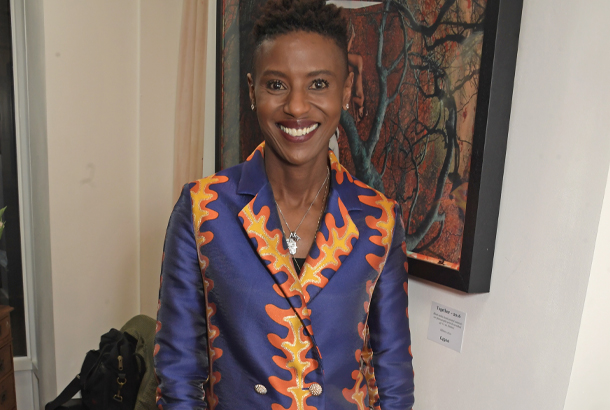
In 2018, this former stylist launched the womenswear brand Lisou (MacDonald’s childhood nickname), and she immediately gained a following—including Charlize Theron and Billy Porter—for her vibrant, printed silk shirts, pantsuits, skirts, and more. Born in Tanzania to parents who were both United Nations ambassadors, Macdonald moved to the U.K. as a child but frequently returned to Africa. A recent discovery that part of her father’s family hails from Ethiopia, where Macdonald lived for some time, inspired her 24-piece spring/summer 2024 collection, 13 Months of Sunshine, which evokes royalty with gold lamé blouses and velvet jackets and pants embroidered with gold and silver lions. The name comes from “a different calendar that is followed in Ethiopia,” Macdonald notes. “I wanted to do a collection that represented my dual heritage—a celebration of those two cultures.”
Accessory Spotlight: Michelle Asare
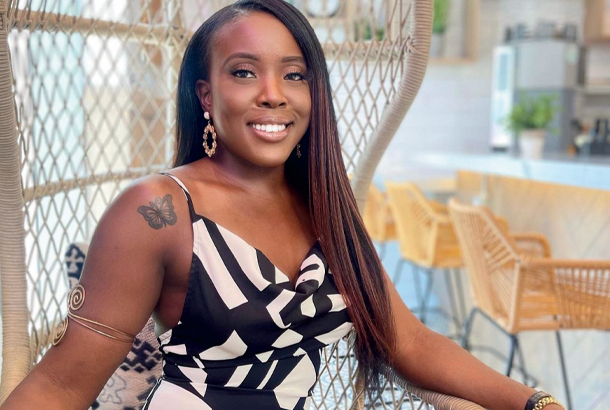
London native Michelle Asare launched Sincerely Nude in 2018, after realizing that most shapewear and body tapes in the marketplace were one-color-fits-all—a color that definitely didn’t fit her. “My shade of brown wasn’t recognized as nude,” says Asare, whose family is from Ghana. “I saw the lack of representation everywhere I went, and it became very frustrating, so I decided to be the change I wanted to see.” Her initial line flourished during the pandemic, when shoppers were looking for brands that represented them authentically, and she has since added multiple shades of “nude” to her line of body tape in particular. “I want women of all skin tones to feel empowered and beautiful,” Asare says.
